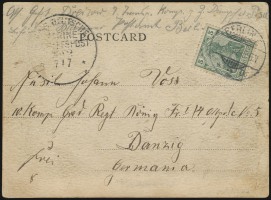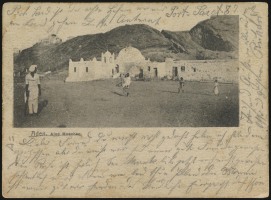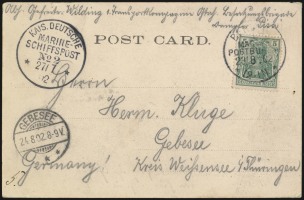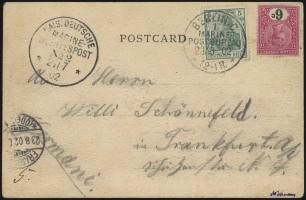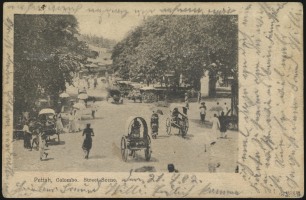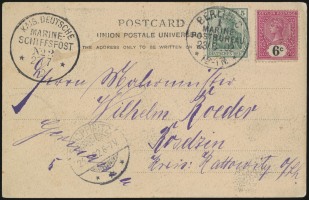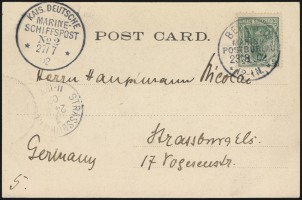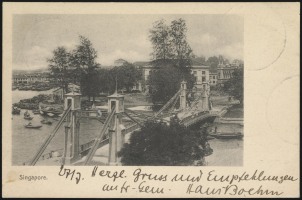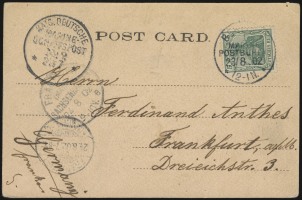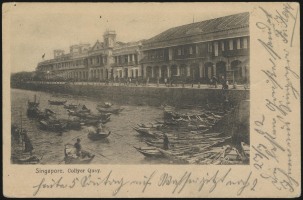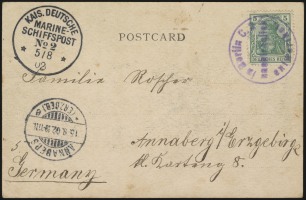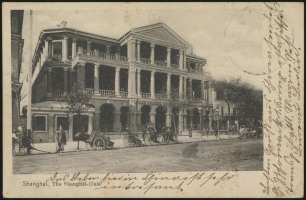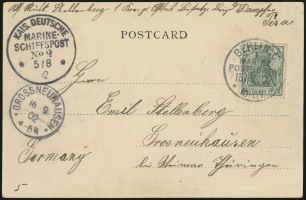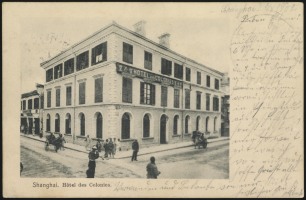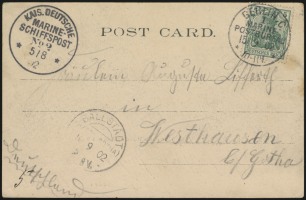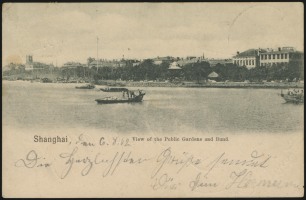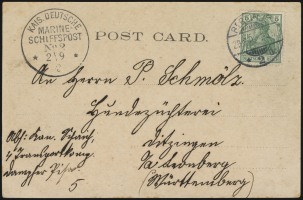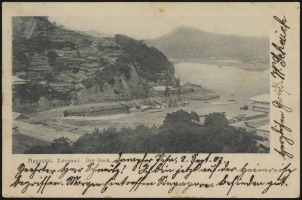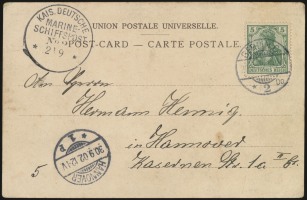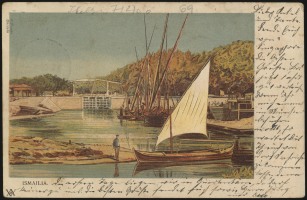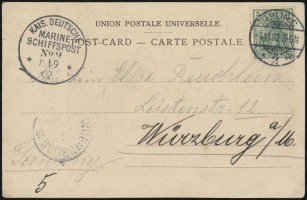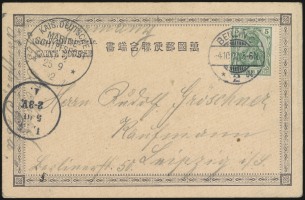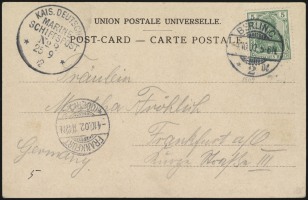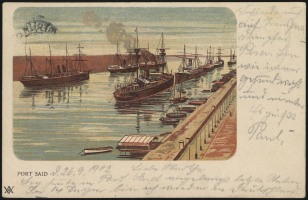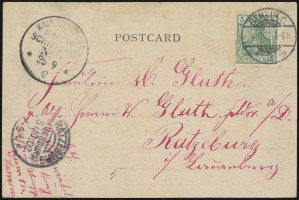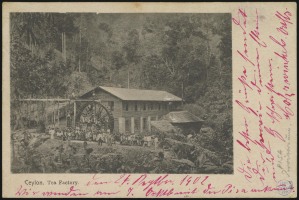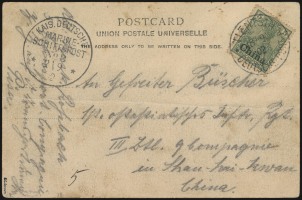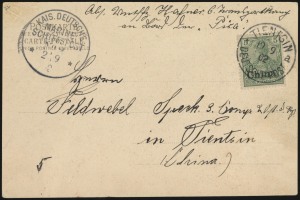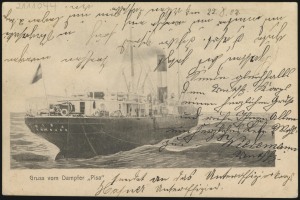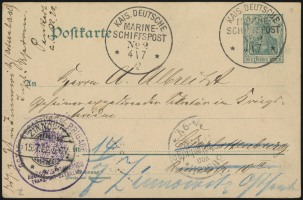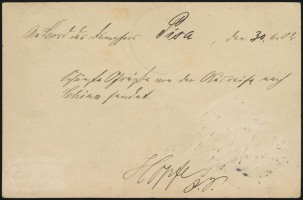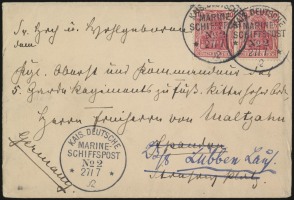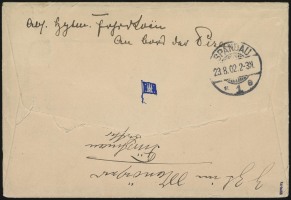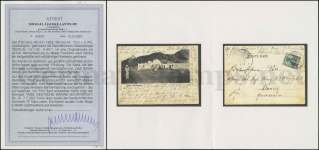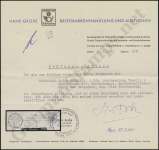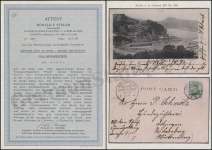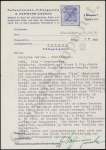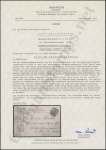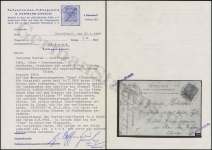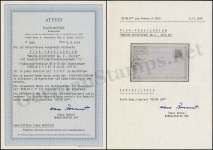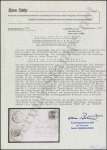Pisa Provisional
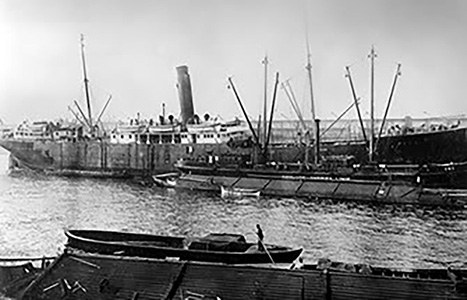
Pisa
On 7 July 1902, the ship ran out of 5 Pfennig postage stamps, and postal regulations prohibited resupply from colonial sources or other ships. The postal clerk therefore resorted to established procedures for denoting a cash franking. He applied the MSP No. 2 cancel to the upper left of each piece and handwrote a “5” in the lower left corner to show the postage paid. MSP cancel dates from 25 June 1902 to 6 August 1902 are from the outbound voyage, with dates 22 August 1902 to 25 September 1902 from the return voyage.
Upon arrival at a German post office, a 5 Pfennig stamp was affixed and canceled. Most of the known items were sent to Germany and bear “Berlin C 1 Marine-Postbureau” or “Berlin C 2” cancels. Approx. 140-150 pieces franked in this manner are known.
The rarest are a small number (≈18) from the return voyage which were sent not to Germany, but to China, where they received Tientsin cancels.
Items from this voyage that were franked without resorting to this procedure are typically either postal stationery with imprinted postage, items franked with 5 Pf. stamps from before the on-board stocks were expired, or items for which the postage rate was other than 5 Pf.
Set Date(s)
22 August 1902 - 25 September 1902
Album Page(s)
Certificate(s)
Pisa Provisional

Pisa
On 7 July 1902, the ship ran out of 5 Pfennig postage stamps, and postal regulations prohibited resupply from colonial sources or other ships. The postal clerk therefore resorted to established procedures for denoting a cash franking. He applied the MSP No. 2 cancel to the upper left of each piece and handwrote a “5” in the lower left corner to show the postage paid. MSP cancel dates from 25 June 1902 to 6 August 1902 are from the outbound voyage, with dates 22 August 1902 to 25 September 1902 from the return voyage.
Upon arrival at a German post office, a 5 Pfennig stamp was affixed and canceled. Most of the known items were sent to Germany and bear “Berlin C 1 Marine-Postbureau” or “Berlin C 2” cancels. Approx. 140-150 pieces franked in this manner are known.
The rarest are a small number (≈18) from the return voyage which were sent not to Germany, but to China, where they received Tientsin cancels.
Items from this voyage that were franked without resorting to this procedure are typically either postal stationery with imprinted postage, items franked with 5 Pf. stamps from before the on-board stocks were expired, or items for which the postage rate was other than 5 Pf.

